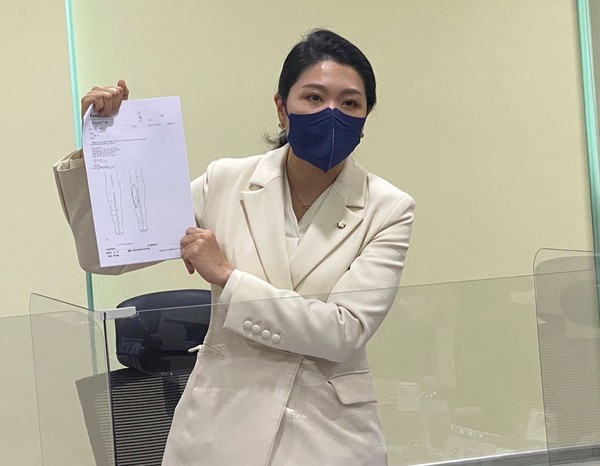One of Korea's widespread – but buried underneath and unknown to the public – issues is medical university professors’ children transferred to their parents’ schools by receiving preferential treatment.
The practice may not be illegal, but apparently irregular and definitely unfair.

The latest case in point is the controversy over Chung Ho-young, nominated for the minister of health and welfare by President-elect Yoon Suk-yeol.
Chung’s son and daughter were transferred to the Kyungpook National University School of Medicine in 2016 and 2017, while their father served as the president of Kyungpook National University Hospital (KNUH). Chung said no illegalities were involved, but the public’s views can hardly be favorable.
On Tuesday, Rep. Shin Hyun-young of the ruling Democratic Party of Korea (DPK), herself a physician, called for Chung to dissolve all doubts about Chung’s two children’s transfers to their father’s school. “If nominee Chung fails to resolve suspicions surrounding his children’s transfers, the public can call for ‘medical reform,” she warned.
Meeting with reporters at the National Assembly, Rep. Shin said she had received a series of similar examples of irregular transfers to medical schools by medical professors’ children, stressing that the medical community should show self-purifying will and efforts in reforming such unfairness.
“The current situation concerning suspicions on nominee Chung is not a personal matter. It is unearthing unfairness related to transfers to medical schools,” Shin said. “Chung denies any unlawfulness, but one cannot but suspect there might have been irregularities, conflict of interest, and acquiescent customs within the medical community involved.”
Rep. Shin stressed that the raising of suspicion about Chung should not aim to bring him down. Instead, the ongoing controversy should serve as an occasion to rectify the unfairness in admission and transfers to medical schools.
“Watching the suspicion on nominee Chung, some people call for a thorough investigation into all admissions and transfers to medical schools. The National Assembly should make corresponding efforts,” she said.
The physician-turned-lawmaker explained that some doctors whose parents are medical professors often receive benefits in choosing specialties, writing theses, and faculty appointment procedures. Internally, many are aware of such unfairness but can seldom discuss it in public.
“There’s a lot of information coming in (about similar examples to Chung from within the medical community,” Shin said. “We will collect related examples through public interest reports, put them to open discussion, and continue to improve admissions and transfers to medical schools to strengthen fairness within the medical community.”
Shin said that some within the medical community recognize the problem but find it difficult to say so. “Whistleblowers, once branded with scarlet letters (within the medical circles), will experience difficulties living as a doctor and a member of the community.”
Therefore, it is important for the medical community to make self-purifying efforts to eliminate illegalities and irregularities and come up with alternatives to improve the situation, Shin noted.
“If the medical community sits on the sidelines in an atmosphere where complaints are hard to make, the public will call for ‘breaking up the cartel.’ And when such situations come, external pressure will lead to medical reform,” she said.
Disclosing that the governing party has asked the education ministry and health-welfare ministry to send the examples of the medical school transfers by the children of medical professors or hospital staff, Rep. Shin said, “We hope the government will launch an investigation and check situations at all medical schools.”

